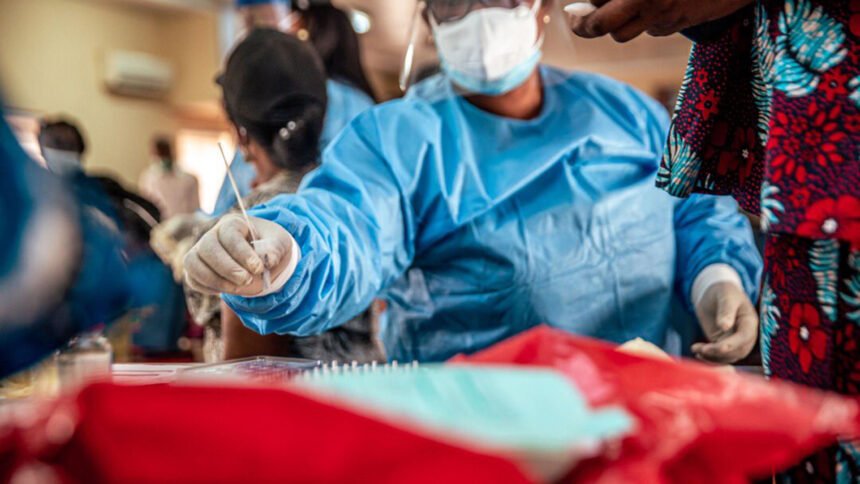In a bid to facilitate access to essential commodities and routine healthcare services during a health emergency period, Civil Society in Malaria Control, Immunization and Nutrition (ACOMIN) has launched a COVID-19 Response Mechanism that would help reduce gaps and challenges in the country’s response to COVID-19 and preparedness for future epidemics and pandemics.
The COVID 19 Response Mechanism (C19RM) Grant seeks to address gaps in the systems and infrastructures for efficient and effective outcomes in the health systems as well as the communities and CSOs.
Delta, Ekiti, Lagos, Cross River, Federal Capital Territory (FCT), Edo, Anambra, Kaduna, Kano, Jigawa, Nasarawa, Plateau, Jigawa, Kwara, Ondo, and Oyo are the states receiving the C19RM award.
Mrs Bunmi Tejumola, the ACOMIN State Co-ordinator, said during a media briefing on the project’s methodology that the effect of COVID 19 can be seen across all disease areas, resulting in a 70 to 80% drop in service uptake.
She said that during the first wave of COVID-19 lockout, the national TB programme saw a 30% decline in Genexpert testing.
Similarly, she revealed that regular malaria diagnostic and treatment access had been interrupted, as had the Malaria Indicator Survey (MIS) and Therapeutic Efficacy Studies (TES).
“Routine malaria diagnostic and treatment access was interrupted, and the Malaria Indicator Survey (MIS) The effect of COVID 19 on HIV, TB, or malaria might be minimised by retaining these key services, according to a recent Global Fund study,” she stated.
Tejumola cautioned that there is an urgent need to scale up adaptive measures to maintain HIV, tuberculosis, and malaria services, as well as to increase delivery of crucial supplies for the COVID-19 response and prevent health-care systems from collapsing.
“The C19RM/RSSH grant is intended to support the following priority interventions: gender-based violence prevention and post-violence care, responding to human rights and gender-related barriers, social mobilisation, community linkage and coordination, institutional capacity building planning, and leadership development.”
“The C19RM component of the funding is intended to assist efforts to prevent, treat, and enhance COVID-19 containment systems, as well as prepare for future pandemics.” It aims to solve system and infrastructure inadequacies via strategic interventions in order to provide efficient and effective health outcomes. It will also combine the reactions of health systems, communities, and CSOS to COVID-19, ensuring that everyone contributes their fair share to attaining the intended outcomes throughout the states of implementation.
“The RSSH component will contribute to making foundational changes by strengthening Nigeria’s health systems through targeted interventions that assist the federal government in setting policies, strategies, and standards, as well as planning, monitoring, and reviewing progress against those standards, governance, and planning reforms that align with national policies, standards, and strategies to drive sustainable improvements to maximise impact on ATM (AIDS, Tuberculosis, and Malaria).”








